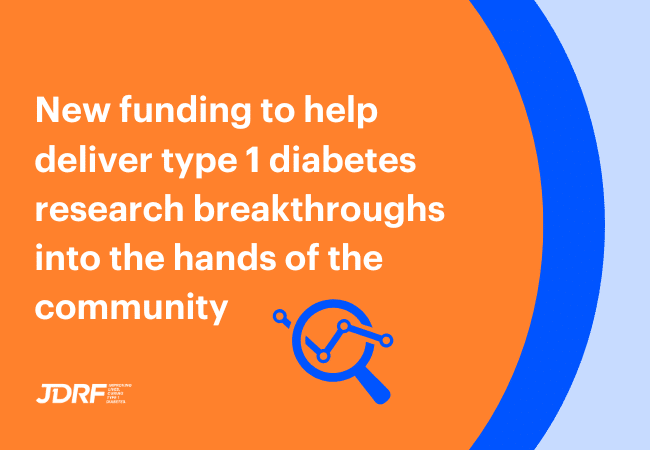How You Can Help Make Type 1 Diabetes Research a Reality

JDRF has an ambitious vision — a world without type 1 diabetes (T1D). We are the biggest funder of type 1 diabetes research globally and in Australia. In order to achieve this with such a complex autoimmune disease, we must take a strategic, multi-level and collaborative approach to research. JDRF has embarked on an extensive research journey over the past 50 years and we’ve been part of many major breakthroughs in T1D care during this time. Our focus is on finding a cure; but until we do, the advancements we’re making every day improve the lives of those living with the disease.
From research in the lab to clinical trials
Laboratory-based experiments, animal experiments and human clinical trials are all extremely important components of JDRF’s clinical research. These are all complementary and necessary as they give us evidence that a discovery made in the lab might develop into a new weapon in our fight against T1D.
Research, especially the kind involving human clinical trials, is very expensive to perform. For example, to screen one person for T1D costs $50 (each test), a clinical trial to delay onset of T1D costs $14,680 per patient and to move research from the laboratory through the complete clinical trial process costs $17 million. JDRF is currently funding eight clinical trials in Australia across 51 sites (for example hospitals, universities and research organisations). Across Australia, JDRF currently has 119 clinical trial participants. None of this work is possible without the support of our incredible community – through participation, donations and fundraising.
Delaying the onset of T1D
For example, at St Vincent’s Institute in Melbourne, an experienced research group have been studying T1D for more than 30 years and their laboratory work has been supported by JDRF for over a decade. This expert team, led by Professors Thomas Kay and Helen Thomas, discovered that they could slow or even stop the onset of T1D by blocking a protein in cells called Janus kinase (JAK) that is key to their signalling pathways. By blocking these pathways with drugs known as JAK inhibitors, the researchers were able to show that they could stop immune cells from destroying insulin-producing β-cells in the laboratory. Following on from this work, the BANDIT trial (Baricitinib in New Onset Type 1 Diabetes) is the first in the world to test a JAK inhibitor (baricitinib) in humans. The trial aims to show that baricitinib can slow the progression of T1D in those who have only recently been diagnosed by allowing the pancreas to keep producing its own insulin for longer.
Research is the key to a future without type 1 diabetes
This is just one of the examples of the world class research JDRF is funding right here in Australia. We will continue to support the most promising research programs, led by the most expert minds in their fields. But we can’t turn research into reality without the help of people like you.
Could you be the 1 to help us continue making an impact?
Any donations made on or before June 9 for JDRF’s Giving Day will be matched and doubled. This means you can make double the impact on the future of type 1 diabetes. Donate here.




